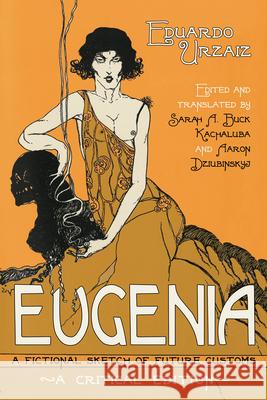Eugenia: A Fictional Sketch of Future Customs » książka
Eugenia: A Fictional Sketch of Future Customs
ISBN-13: 9780299306847 / Angielski / Miękka / 2016 / 284 str.
It is the year 2218. In "Villautopia," the capital of a Central American nation, the state selects young, biologically desirable citizens to act as breeders. Embryos are implanted in males to increase a flagging population rate, and the offspring are raised in state facilities until old enough to choose their own, non-nuclear families. Sterilization of children with mental or physical abnormalities further ensures the purity of the gene pool.
Written two years before Yevgeny Zamyatin's We and twelve years before Aldous Huxley's Brave New World, Eugenia recounts the story of Ernesto, who at age twenty-three is selected as a breeder. Celiana, his thirty-eight-year-old lover and an accomplished scholar, is deemed unfit for reproduction. To cope with her feelings of guilt and hopelessness, she increasingly turns to marijuana, and her scholarly productivity declines. Meanwhile Ernesto falls in love with a fellow breeder, a young woman named Eugenia-but the life they ultimately choose is not quite what the state had envisioned.
Taking up important challenges of modern society-population growth, reproductive behavior and technologies, experimentation with gender roles, and changes in family dynamics-Eugenia is published here in English for the first time. Sarah A. Buck Kachaluba and Aaron Dziubinskyj provide a critical apparatus helping readers to understand the novel's literary genesis and genealogy as well as its historical context. Arising from its twentieth-century origins, yet remarkably contemporary, Eugenia is a treasure of speculative fiction.











